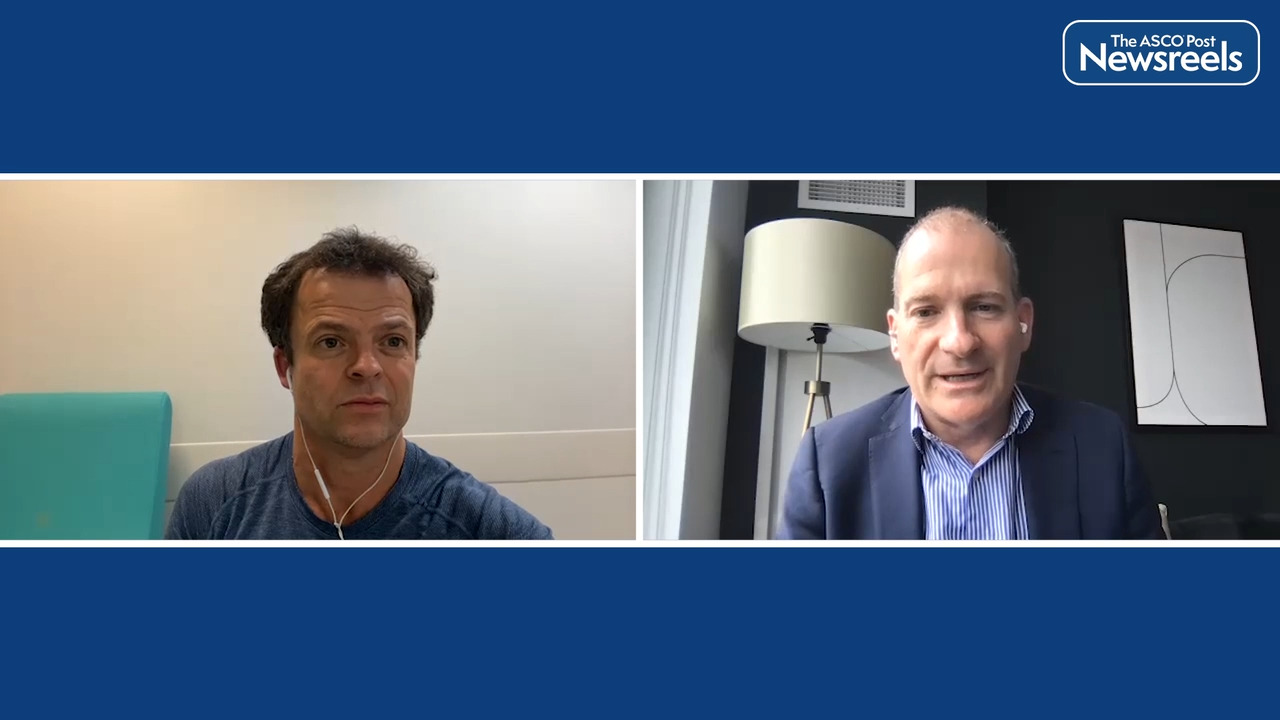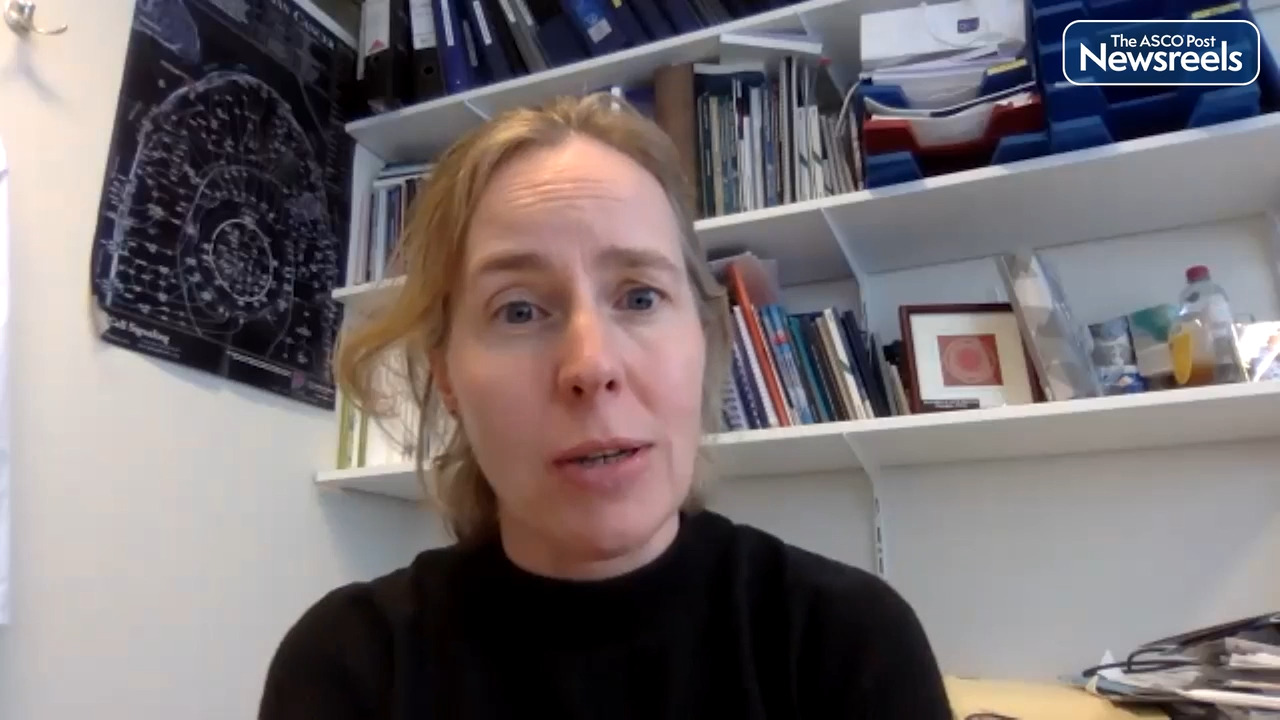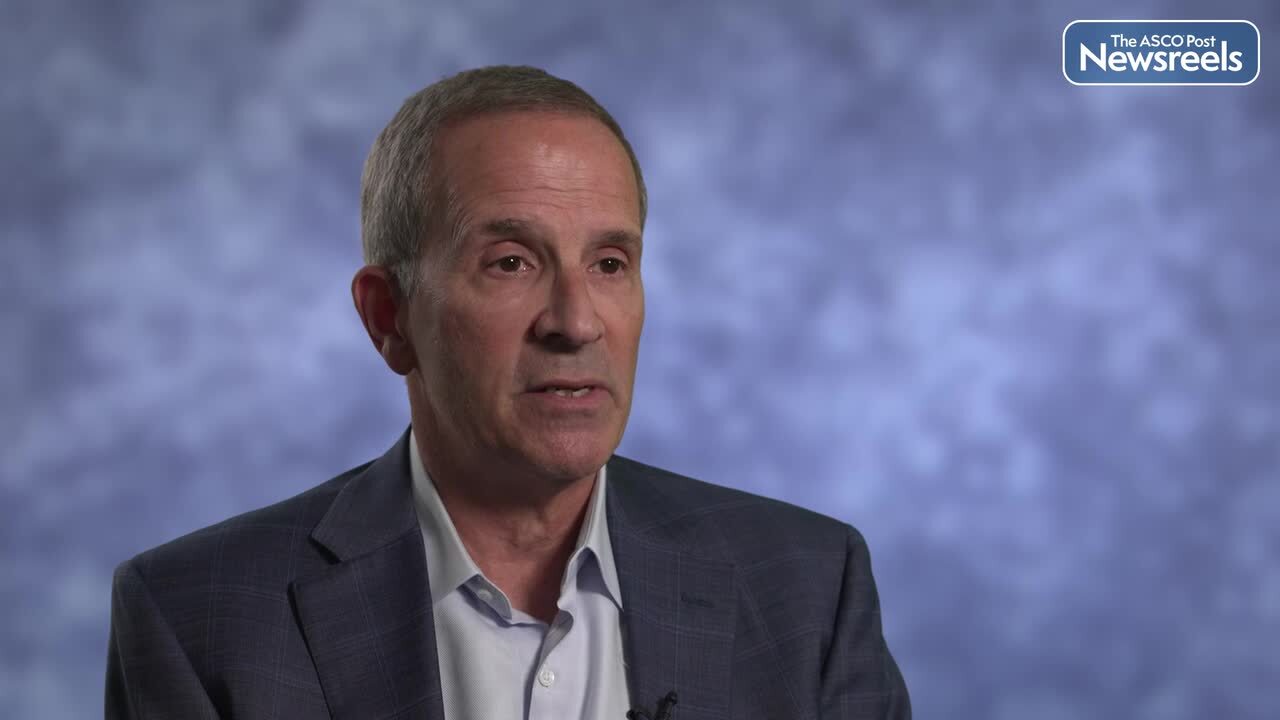Christelle de la Fouchardiere, MD, on Pancreatic Ductal Adenocarcinoma: Phase III Trial Results With Gemcitabine Plus Paclitaxel
ESMO Congress 2022
Christelle de la Fouchardiere, MD, of France’s Centre Léon Bérard, discusses phase III findings from the PRODIGE 65–UCGI 36–GEMPAX UNICANCER study, which evaluated whether the combination of gemcitabine and paclitaxel improves overall survival compared with gemcitabine alone in patients with metastatic pancreatic ductal adenocarcinoma after FOLFIRINOX failure or intolerance (Abstract LBA60).
Transcript
Disclaimer: This video transcript has not been proofread or edited and may contain errors.
The GEMPAX study is a phase III randomized trial comparing in patients with metastatic pancreatic ductal adenocarcinoma second-line therapy with gemcitabine and paclitaxel versus gemcitabine alone. The primary endpoint of this study was overhaul survival. Patients included were having metastatic pancreatic ductal adenocarcinoma, they were having experienced disease progression of failure after FOLFIRINOX, and maintaining a good ECOG performance status. They were randomized with a 2:1 ratio between GEMPAX, the weekly combination of gemcitabine and paclitaxel, 3 weeks over 4 versus gemcitabine alone. They stopped treatment at disease progression or toxicity. There were four stratification factors, ECOG PS, CA19-9 at baseline, first-line PFS, and neutrophil to lymphocyte ratio.
The main results of this study is that we didn't observe any significant benefit in overall survival with the addition of paclitaxel to gemcitabine versus gemcitabine alone in this setting. But this is the first prospective phase III trial evaluating second-line therapy after FOLFIRINOX and we observe a good improvement of progression-free survival, a significant one, and also a significant increase in overall response rate, which is highly clinically relevant in this poor prognosis disease. Furthermore, we observed more treatment discontinuation in the GEMPAX arm and also imbalance in third-line therapies that could explain the absence of overall survival benefit.
Then, we think that gemcitabine plus paclitaxel may be the standard second-line therapy after FOLFIRINOX failure or intolerance in metastatic pancreatic ductal adenocarcinoma patients. A substantial proportion of patients in this study received third-line therapies, reflecting the eye medical need, and also the requiring further clinical trials for this pathology.
Related Videos
The ASCO Post Staff
Thomas Powles, MD, PhD, of Barts Health NHS Trust, Queen Mary University of London, and Christopher Sweeney, MBBS, of Dana-Farber Cancer Institute, discuss two important phase III studies on renal cell cancer (RCC) presented at ESMO 2022: IMmotion010, which examined the efficacy and safety of atezolizumab vs placebo as adjuvant therapy in patients with RCC at increased risk of recurrence after nephrectomy; and CheckMate 914, which compared nivolumab monotherapy or nivolumab combined with ipilimumab vs placebo in patients with localized disease who underwent radical or partial nephrectomy and who are at high risk of relapse. (Abstract LBA4 & LBA66).
The ASCO Post Staff
Marleen Kok, MD, PhD, of The Netherlands Cancer Institute in Amsterdam, discusses the initial results from the BELLINI trial, which tested whether short-term preoperative nivolumab, either as monotherapy or in combination with low-dose doxorubicin or novel immunotherapy combinations, can induce immune activation in patients with early-stage triple-negative breast cancer with tumor-infiltrating lymphocytes (Abstract LBA13).
The ASCO Post Staff
Laurence Buisseret, MD, PhD, of Belgium’s Institut Jules Bordet, discusses phase II results from the SYNERGY trial, which tested first-line chemoimmunotherapy of durvalumab, paclitaxel, and carboplatin with or without the anti-CD73 antibody oleclumab in patients with advanced or metastatic triple-negative breast cancer. Although adding oleclumab to durvalumab with chemoimmunotherapy did not increase the clinical benefit rate at week 24, research is ongoing to better understand the mechanisms of response and resistance to this study combination (Abstract LBA17).
The ASCO Post Staff
Neal D. Shore, MD, of Carolina Urologic Research Center/Genesis Care, discusses new data from the ENACT trial, which showed that patients with prostate cancer and the RNA biomarkers PAM50 and AR-A were likely to have better outcomes with enzalutamide treatment. The results suggest that such RNA biomarkers may help to identify patients who may benefit from enzalutamide treatment compared with active surveillance (Abstract 1385P).
The ASCO Post Staff
Matthew P. Goetz, MD, of Mayo Clinic, discusses recent data from the MONARCH 3 trial of patients with advanced hormone receptor–positive, HER2-negative breast cancer. The study, a second interim analysis, showed that longer overall survival was observed in both the intention-to-treat group as well as in the subgroup with visceral disease. However, neither met the threshold for statistical significance, and further analyses are planned when more data can be reported. (Abstract LBA15).





